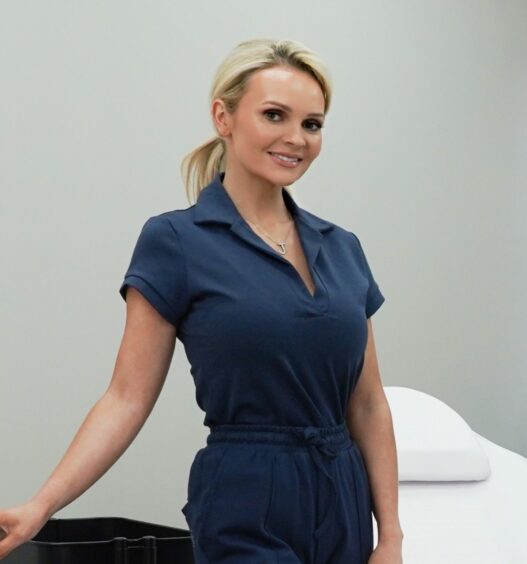
With fans including Holly Willoughby, Victoria Beckham and Gwyneth Paltrow, microneedling is one of the most talked about treatments in beauty circles right now.
Helping to reduce fine lines and wrinkles, improve acne scarring and promote a poreless complexion – to name just a few benefits – the advanced facial is a must-try if you want A-list skin without going under the knife.
Here, beauty expert Jodie McLuskie shares everything you need to know before booking your first session.
Small yet mighty
So, how does microneedling actually work?
“Microneedling, also known as collagen induction, is an extremely effective treatment that utilises the skin’s own ability to regenerate and heal itself,” explained McLuskie, who owns Glasgow-based clinic and training academy, Skinstitute Scotland.
“Using very small micro-needles to puncture the skin the treatment creates micro-channels that signal the body to respond by producing collagen and elastin.
“This results in improved blood flow in the skin which helps to normalise various skin functions.”
Flawless beauty
The treatment, McLuskie explained, really is an
all-rounder for a range of concerns: “Microneedling treats a variety of skin concerns on both the face and body, including reducing appearance of fine lines and wrinkles, sun damage, pigmentation, open pores, mild to moderate acne scarring, stretch marks, and loose skin.”
During and after
With “needle” in the name, is microneedling painful?
“At Skinstitute we use Dermapen, an automated device allowing us to control the depth of each area we are treating, enabling a more comfortable treatment for the patient,” said McLuskie. “Patients should be able to resume their daily routine almost immediately or within a few hours, although it does depend on the depth of the Dermapen.
You may notice some redness and mild swelling, but this should subside within 24-48 hours.
“We ask all patients to avoid extreme temperatures (hot baths and saunas, for example) for at least 48 hours, as well as intense sunshine for at least 14 days post-procedure.”
The cost
Treatments start from £165, and McLuskie recommends a course of three to six treatments, each four to six weeks apart, for optimum results.

Enjoy the convenience of having The Sunday Post delivered as a digital ePaper straight to your smartphone, tablet or computer.
Subscribe for only £5.49 a month and enjoy all the benefits of the printed paper as a digital replica.
Subscribe